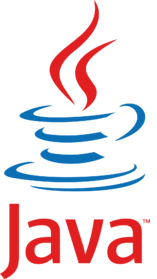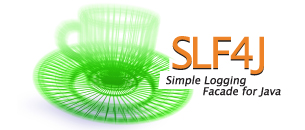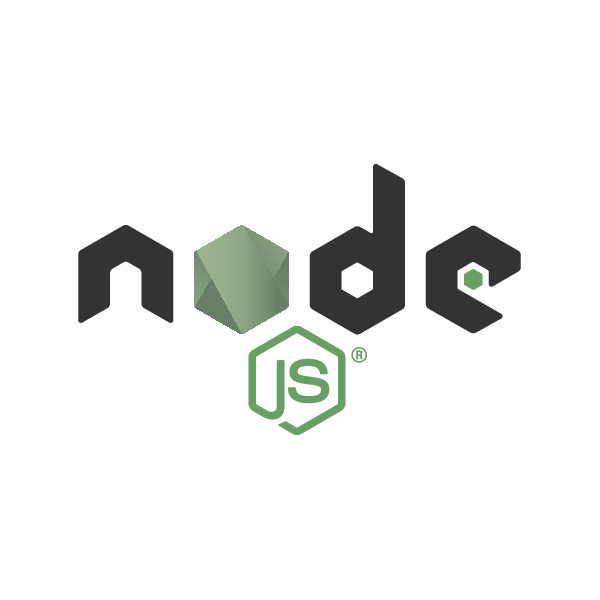Generate Plain Old Java Objects (POJOs) from OpenAPI Model Definitions with Gradle (2 mins read).

How to generate POJOs really quickly and easily, with no manual work, using the Gradle openapi-generator Plugin.
Generate Plain Old Java Objects (POJOs) from OpenAPI Model Definitions with Gradle (2 mins read).

How to generate POJOs really quickly and easily, with no manual work, using the Gradle openapi-generator Plugin.
Running Elements API Viewer to Verify Local OpenAPI/Swagger Documents (2 mins read).

How to run Elements UI locally to visualise OpenAPI documents.
I don't think you should be logging that? 😳 (12 mins read).
Common pitfalls and dangerous things that you should be watching out for in your log messages.
Validating a MockMvc Response Has No Content Type (1 mins read).

How to validate, in a MockMvc test, whether the response has no content-type nor a body.
Replacing Text in Vim with the Output of a Command (1 mins read).

How to replace text under the cursor with the output of a command.
Integration Testing Your Spring RestTemplates with RestClientTest, using spring-test (8 mins read).

How to write integration tests using RestClientTest with Spring Boot, for use with RestTemplate and RestTemplateBuilders.
Running Swagger UI to Verify Local OpenAPI/Swagger Documents (2 mins read).

How to run Swagger UI locally to visualise OpenAPI documents.
Create Executables, not Shell Aliases or Functions (2 mins read).
Why I create standalone executable scripts instead of shell aliases or functions.
Announcing spring-content-negotiator, a Java Library for Content Negotiation with Spring (1 mins read).

Releasing a new library that can support content negotiation in Spring (Boot) applications, i.e. in Filters or ExceptionHandlers.
Getting Started with jMolecules and the (Classical) Onion Architecture, with a Spring Boot project (6 mins read).

A guided example of converting a Spring Boot project to the Onion Architecture pattern.
How to Create and Unit Test Java Bean Validation Annotations (12 mins read).

A guided example through what the different type of annotation ElementTypes are, with respect to Bean Validation, and how to write unit tests for them.
Codifying Your Technical / Architectural Standards with ArchUnit (7 mins read).

How to use ArchUnit to codify your technical standards to reduce code review requirements, and arrive at a more consistent codebase.
Appending to a Querystring using Go (1 mins read).

How to append query parameters in a URL in Go.
Don't Just String Append to a Querystring (1 mins read).
Why you shouldn't use concatenate strings together to append to a querystring.
Simplifying Spring (Boot) ExceptionHandlers with ResponseStatus Annotations (2 mins read).

How to use annotations to drive HTTP response codes from a Spring ExceptionHandler.
Use SLF4J, not Log4J, as Your Logging Interface (3 mins read).

Why we should be using the interface API for logging, rather than the underlying implementation's API.
Using the Facade Pattern to More Easily Test static or Complex Classes (2 mins read).

How to use the Facade design pattern to more easily test classes that are more complex than our tests need to understand.
Mocking void methods with Mockito (1 mins read).

How to Mock a void method with Mockito, for instance to throw an exception.
Thoughts on Social Media Anonymity (4 mins read).
My thoughts on the protection of social media anonymity.
Content Negotiation with Servlet Filter in Spring (Boot) (3 mins read).

How to perform content-negotiation in a Servlet Filter, to serve the correct representation of error to a consumer, based on the Accept header.
Content Negotiation with ControllerAdvice and ExceptionHandlers in Spring (Boot) (5 mins read).

How to perform content-negotiation in a Spring ExceptionHandler, to serve the correct representation of error to a consumer, based on the Accept header.
Error Handling in (Spring) Servlet Filters (2 mins read).

How to return HTTP errors when a Java Servlet fails with Spring (Boot).
'Knowing Me, Knowing You': Wiggly ears, custom pizzas and a burst appendix (5 mins read).
A copy of answers to the DSA's 'Knowing Me, Knowing You'.
Announcing uuid, a Java Library for UUID Validation (1 mins read).

Releasing a new library that can be used to validate UUIDs in Java.
Validating UUIDs with Regular Expressions in Java (1 mins read).

How to validate UUIDs and UUIDv4s in Java with a regex.
Auditing with Spring Boot Actuator (9 mins read).

How to use Spring Boot Actuator for your audit and business event logging needs.
Returning a Value, or a Default, From a Java Optional (1 mins read).

How to replace imperative code with a functional style, when returning a default value for a Java Optional.
Building an Automagically Updating Personal README for GitLab and GitHub (2 mins read).
Announcing the publishing of readme.jvt.me as well as automagically updating READMEs in my GitLab and GitHub profiles.
Adding both an ObjectMapper and a YAMLMapper to Spring Boot (2 mins read).

How to have an ObjectMapper and a YAMLMapper coexisting in a Spring Boot project's bean dependencies.
Testing Data Serialisation/Deserialization in Java (with Gson) (3 mins read).

How to validate your JSON types correctly serialise/deserialise when using the Gson library.
Improving Life-Work Balance on GitHub using per-Organisation Notification Settings (2 mins read).

How to set up per-organisation notification settings so your personal email doesn't get work-related notifications.
Publishing to Maven Repositories with GitLab CI, with Signed Artefacts (4 mins read).

How to publish signed artefacts from a Gradle build to Maven repositories (such as Maven Central) when using GitLab CI.
Suppressing No pinentry warnings with GPG (in Automated Builds) (1 mins read).
How to get avoid No pinentry warnings when running GPG in automated build environments like CI/CD.
Gotcha: PicoContainer requires Zero-Argument Constructors (2 mins read).

A little gotcha around using PicoContainer (with Cucumber) where it may not be usable unless you have zero-arg constructors.
Using Dagger for Dependency Injection with Cucumber Tests (4 mins read).

How and why to add Dagger for your Cucumber tests' dependency injection.
Publishing a NPM Package to npmjs.com from GitLab CI (1 mins read).

How to publish an NPM package to the public NPM registry, using GitLab CI.
Announcing a new package: @jamietanna/spectral-test-harness (1 mins read).

Announcing a new NPM package for easier testing of Spectral API linting.
Test Driven Development for Your Spectral Rules, using Jest (7 mins read).

How to write unit tests for Spectral API linting, in a test-driven development fashion.
Autowiring your controllers automagically when using MockMVC and Spring Cloud Contract (2 mins read).

How to automagically set up your Spring controllers when using MockMVC with Spring Cloud Contract.
Decompiling Java Class Files On the Command-Line (2 mins read).

How to use the Fernflower decompiler on the command-line to decompile compiled Java classes.
Validating a Spring (Boot) Response Matches JSON Schema with MockMVC (3 mins read).

How to perform JSON Schema validation for a Spring (Boot) service's response when testing using MockMVC.
Retrieving All Dependencies Required by a JAR at Runtime (3 mins read).

How to handily retrieve the full runtime classpath required for a JAR file, using Gradle.
Use a (JSON) Schema for the Interface Portion of your RESTful API (3 mins read).
Why you should be using a well-defined (JSON) Schema for the data classes that your API consumers will need to utilise.
Getting the Date from a Week Number in Java (1 mins read).

How to get the date from a week number and year in Java.
Debugging Chef Variables With Logs (3 mins read).

How you can use different means of logging to make operations with Chef cookbook a little easier.
Getting the Battery Status of a Bluetooth Device on Linux (1 mins read).

How to use dbus-send to retrieve the percentage of battery left on a Bluetooth device on Linux.
Converting a Kitchen YAML to Chef Attributes (2 mins read).

How to convert attributes being set for your Chef Test Kitchen integration tests to an attributes.rb format.
Using systemd-tmpfiles to manage temporary files and directories (2 mins read).
How I'm using systemd-tmpfiles to manage a temporary working directory and automagically clean it out.
Should That (Secret) Thing Be In Your Querystring? (2 mins read).
Why you should be very cautious about putting potentially sensitive values into the querystring of web APIs.
Owning my Hashtags (2 mins read).
Why I decided to treat hashtags in my (syndicated) content as tags on my site.